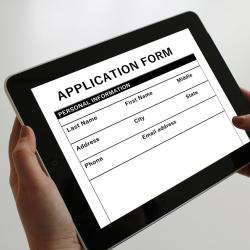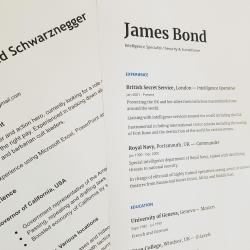Cover Letter vs. Resume: What’s the Difference and Why It Matters
When it comes to applying for jobs, two essential documents often come into play: the cover letter and the resume. While both serve as tools to present yourself to potential employers, they each have distinct purposes and components that set them apart. Understanding these differences can significantly enhance your job application strategy, ensuring you effectively communicate your suitability for the role you're aiming for.
1. Purpose and Focus
The primary purpose of a resume is to provide a snapshot of your professional background, skills, and achievements. It is a concise and structured document that highlights your work history, education, skills, and relevant accomplishments. A resume is meant to show employers that you meet the minimum qualifications for a job and can bring value based on your past experiences.
In contrast, a cover letter is a personalized document that accompanies your resume. It serves to introduce you to the employer, explain your interest in the role, and express how your specific skills and experiences make you the ideal candidate. The cover letter allows you to convey your personality, enthusiasm, and fit for the company culture in a way that a resume cannot.
2. Structure and Content
Resumes are typically formatted in bullet points for quick readability and are organized into sections such as contact information, work experience, education, skills, and optionally, professional summaries or objectives. The focus is on factual information and quantifiable achievements, with an emphasis on tailoring content to the job description.
A cover letter, however, is more narrative in format. It usually consists of an introduction, a body comprising one or two paragraphs, and a conclusion. In the introduction, you mention the position you're applying for and how you found out about it. The body of the cover letter should provide examples of how your previous experiences have prepared you for the role and should be tailored to address specific qualifications and job responsibilities listed in the job posting. The conclusion is where you express enthusiasm for the opportunity, suggest a potential interview, and thank the employer for their consideration.
3. Length and Style
Resumes are typically one to two pages long, depending on your experience level. The language used is succinct and professional, focusing on clarity and precision.
Cover letters, on the other hand, should be around half a page to a full page in length. They should maintain a professional tone but allow for more expressive language that reflects your personality and passion for the job.
4. Customization and Specificity
While it is important to tailor both documents for each job application, the level of customization in a cover letter is typically more detailed. Your resume can remain relatively consistent across applications, with adjustments made to highlight the most relevant experiences for each job. However, a cover letter should be rewritten or at least substantially adjusted for each application to specifically address the employer's needs and how your unique background and skills align with the role.
Why It Matters
Understanding and leveraging the differences between a cover letter and a resume can significantly impact your job search success. Employers receive numerous applications for each position, often spending only a short amount of time on each. A well-crafted resume is essential to make a strong first impression, allowing you to quickly demonstrate that you have the necessary qualifications and experiences.
However, in many cases, it is the cover letter that can distinguish you from other candidates. It provides an opportunity to make a compelling case for your candidacy, showing employers not just that you can do the job, but that you want to and that you align with the company's goals and values.
In conclusion, both the resume and cover letter are crucial elements of the job application process. Understanding their differences and how to effectively utilize each can enhance your ability to stand out to employers, ultimately increasing your chances of landing the role you desire.






















